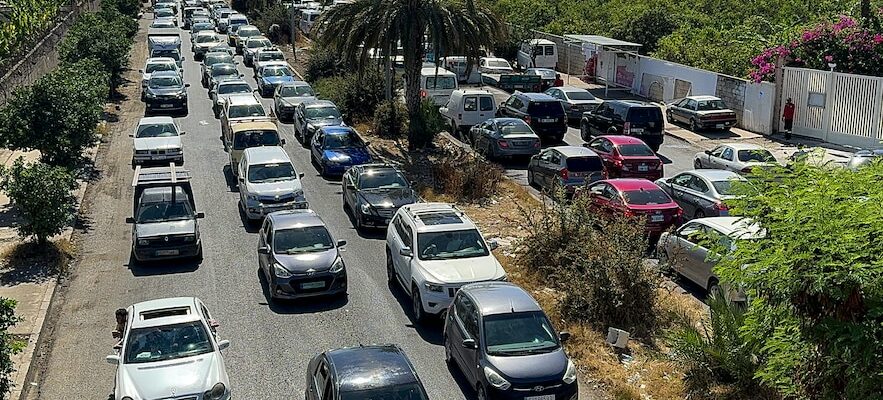Terror reigned on Monday, September 23, in southern Lebanon, where Israeli aircraft dropped a carpet of bombs, killing at least 274 people, including 21 children, the heaviest toll in nearly a year of violence. Concern has even spread to the capital, Beirut, which has so far been spared by the conflict between the pro-Iranian Hezbollah and Israel, with residents receiving Israeli warnings on their cell phones and landlines.
The human toll continued to rise throughout the day. At a press conference, the minister said the toll was “274 dead, including 21 children and 29 women (…) at this stage”, adding that “thousands of families from the targeted areas have been displaced”. The dead also included two rescue workers, while 16 health workers were injured, he added, specifying that “two ambulances, a fire truck and a care centre were targeted”. Monday’s raids left more than 1,000 injured, treated in 27 hospitals, the minister also said.
Since Monday morning, the Israeli army has carried out “preventive and large-scale airstrikes against Hezbollah terrorist targets in Lebanon,” it said in a statement, adding that these had hit “approximately 800 Hezbollah terrorist targets in southern Lebanon and in the Bekaa region, inside Lebanese territory.”
The army announced it was expanding the scope of its bombings and carrying out new “large-scale” strikes on the Bekaa Valley, a Hezbollah stronghold in eastern Lebanon. It asked its residents to move away from the Islamist movement’s weapons depots, repeating an appeal made to the population in the south.
Monday’s strikes targeted the south, including the outskirts of the coastal city of Tyre, and eastern Lebanon, sending up thick mushroom clouds of smoke, according to AFP correspondents and witnesses. “Israel’s policy is not to wait for threats but to anticipate them, which is what we are doing,” Israeli Prime Minister Benjamin Netanyahu said soberly during a security meeting in Tel Aviv, according to a statement from his office.
Thousands of families displaced in the south
The relentless raids have forced thousands of southerners, who had previously stayed home despite daily bombardments, to flee in panic. Hundreds of cars carrying families were stuck in traffic jams in the southern city of Saida, AFP photographers said.
Hundreds of cars carrying families in Saida, the big city in the south.
© / Ahmed Kaddoura / ANADOLU / Anadolu via AFP)
Lebanese Prime Minister Najib Mikati denounced “a plan to destroy” his country, where hospitals have been put on alert in the south and east in the face of an influx of wounded while schools have closed for two days in several regions.
Hezbollah official targeted in Beirut
In Beirut, an Israeli raid on the southern suburbs targeted the commander of Hezbollah’s southern front Ali Karaké on Monday, a source close to the pro-Iranian group told AFP. This is the second raid on the southern suburbs, a Hezbollah stronghold, since Friday, when an Israeli strike killed the head of the elite force of the Lebanese Islamist movement. The Israeli army, for its part, indicated that it had carried out “a targeted strike” in Beirut, without giving further details immediately.
Hezbollah has been exchanging cross-border fire almost daily with Israeli forces in support of Hamas since the Palestinian Islamist movement’s October 7 attack on Israel that sparked the ongoing war in Gaza, but the violence has escalated dramatically in recent days.
The UN said it was “extremely concerned” on Monday by the explosion of violence in Lebanon, judging that this spiral “must stop”, while US President Joe Biden said he was “working towards a de-escalation that would allow people to return to their homes in complete safety”.
